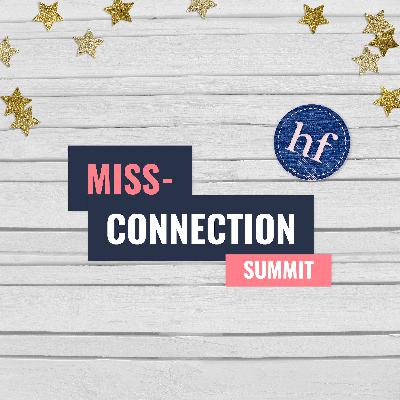Michelle Mitchell | Self Harm
Description
Timestamps
00.12 Dr Justin Coulson introduces Michelle Mitchell & her books
01.24 What exactly is self harm?
02.09 Stress + Something = Relief for all of us
02.40 Self harm appeals to children in middle school because they have such intense emotions
02.58 Young people can binge drink to self harm
04.01 The aim is to help our young girls move through their intense emotions
04.55 A gender divide
06.30 Why are teens today struggling more than teens in the past?
07.25 There is very much a copycat or contagious element to self harm
08.15 Percentages of teens self harming
09.05 You don’t see what you’re not looking for
10.27 A lack of connection
10.51 Self harm is often linked to poor mental health & family instability
11.28 Look for a sense of joy in the child’s life
12.32 Giving emotions movement
13.05 Nervous bystander energy
13.53 Sometimes the girls that look okay on the outside are the ones that are not disrupting the system
14.02 Polar opposites of trust and control & fear
15.14 Contagion. Should we talk about self harm?
16.50 How do we bring up the conversation?
17.40 Their initial exposure to the topic has got so much to do with how they build on that in the future
18.40 How do parents help?
19.06 Three reasons why children self harm & the needs they’re trying to meet. Connection, understanding & a sense of protection.
20.41 Make sure kids know that you’re showing up as the bigger person & that there’s nothing they can throw at you that you can’t handle.
23.38 How do you get a child to talk?
24.55 Self harm is notorious for being very difficult for girls to talk about
25.10 When we allow young people to make mistakes, we allow opportunity for growth
26.05 Create a consistent routine
29.29 Baby steps
30.23 Pro self harm spaces on the internet
32.11 Using the internet to self regulate & social media to self soothe
33.03 When our children are really in danger, part of what we have to do as parents is step up and be protective
34.17 What do you do when you’ve got a child who is refusing to ‘get help’?
35.09 Zoom out, rather than zoom in. Look at them holistically and try and tip the scales in their favour
35.30 “You deserve support right now”
35.45 Suggest a trial period
36.14 Appeal to their sense of compassion
36.48 Leave the door open
37.47 Relationships work better when it’s 50/50
38.20 We don’t want to squash the sense of compassion but we want them to turn the sense of nurturing back onto themselves
40.24 Armed with a few more tools for today, tomorrow can be so much easier
42.43 BONUS TIPS: Create a coping kit, paper chains, & fake tattoos
Michelle Mitchell
Michelle Mitchell is an award-winning speaker, and bestselling parenting author. She has been termed ‘the teenage expert’ by the media and is sought after for her compassionate and grounded advice for parenting tweens and teens. Michelle started her career as a teacher, but soon discovered a special interest in wellbeing. She left teaching in 2000 and founded Youth Excel, a ‘boutique’ health promotion charity which delivered tailor made life skills programs and psychological services to thousands of young people and their families each year. Today she uses her experience to write and speak in schools, community events and through media.
Self-harm is distressing and difficult for parents and caring adults to understand, as it seems to go against every instinct of self-protection and survival.
Author, educator and award-winning speaker Michelle Mitchell has over 20 years’ experience working with and supporting children, parents and carers as they navigate this confronting mental health concern.
In this book and audio presentation Michelle combines her experience with the latest research and interviews with experts and families to provide fresh insights into how to prevent, understand and respond to self-harm and digital self-harm.
See omnystudio.com/listener for privacy information.





